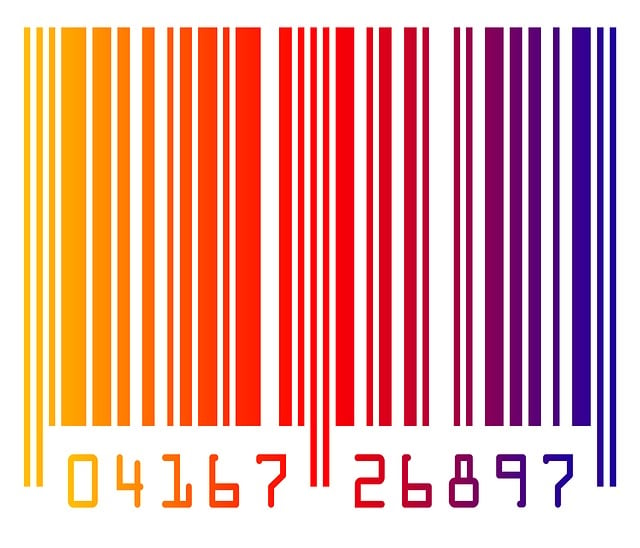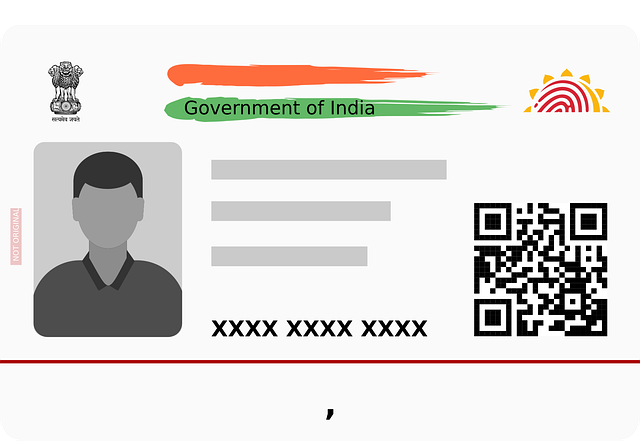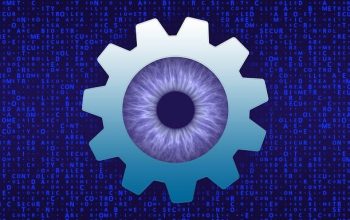The Vehicle Identification Number (VIN) is a unique 17-character code that provides comprehensive details about a car's origins, specifications, and history, including its make, model, year, manufacturer, vehicle type, model year, distinguishing features, serial number, production details, and any history of recalls or accidents. It's essential for car buyers and owners to understand the VIN as it allows them to verify authenticity, check for a vehicle's documented history, and maintain the integrity of the car market. VIN lookup services are crucial tools for consumers to protect their investments by revealing a vehicle's past, including any salvage titles, thefts, or total loss claims. These services help prevent fraudulent activities such as VIN cloning and ensure that the vehicle's history is transparent, enabling informed purchasing decisions. Always check the VIN against official documents and use reputable VIN lookup services to ensure you are getting a car with no hidden defects or misrepresentations.
When you sip on a cup of tea, you’re not just indulging in a moment of tranquility; you’re also unlocking a wealth of wellness. From the robust antioxidants in green tea to the soothing properties of chamomile, each leaf holds unique health treasures. As we delve into the diverse benefits that black, white, oolong, and herbal teas offer, it becomes clear that understanding their origins and qualities is key to enhancing your health regimen. Join us as we explore the transformative effects of tea on our health, including insights on how to choose the right variety for your well-being needs. Whether you’re seeking a vigorous antioxidant boost or aiming to calm your mind, the perfect brew awaits to support your journey to optimal health.
- Understanding the VIN Structure: A Comprehensive Breakdown
- Decoding Your Vehicle's History: What Each Part of the VIN Reveals
- The Importance of VIN Fraud Detection in Car Buying
- Utilizing VIN Lookup Services to Verify Your Vehicle's Past
- Spotting Red Flags: Common Issues Uncovered by VIN Checks
- Protecting Your Investment: Tips for Analyzing a VIN and Preventing Fraud
Understanding the VIN Structure: A Comprehensive Breakdown

The Vehicle Identification Number, commonly known as the VIN, is a unique identifier for individual motor vehicles and is standardized to allow for ready comparison worldwide. This 17-character code, meticulously etched on a vehicle’s chassis or dashboard, encapsulates a wealth of information about the automobile’s origins, specifications, and history. The VIN structure is segmented into parts that reveal the vehicle’s make, model, year, plant where it was manufactured, and its unique serial number. Each section of the VIN is decoded as follows:
– Characters 1 to 3: Identify the country or region where the manufacturer is based and the car manufacturer themselves. These characters can also indicate the vehicle’s type or line.
– Characters 4 to 9: Specify the vehicle’s description, including its make, model, body style, restraint systems, and other distinguishing features. This segment includes the model year as a key digit.
– Character 10: Known as the ‘check digit,’ it’s used to ensure that the VIN isn’t a mismatch or incorrectly entered. It serves as a mathematical validation for data accuracy.
– Characters 11 to 17: These numbers and letters represent the vehicle’s unique serial number, production sequence, plant code, and sometimes, assembly line information. This part is crucial in identifying any recalls, maintenance issues, or previous accidents associated with the vehicle.
Understanding the VIN structure is not just academic; it’s a practical tool for car buyers and owners alike. It empowers consumers to make informed decisions, whether they are purchasing a used vehicle or ensuring their new car has no hidden history of damage or title issues. With the rise in VIN cloning scams, this knowledge is indispensable for verifying the authenticity of the vehicle’s records and history. Utilizing VIN lookup services and tools for fraud detection can provide peace of mind and help maintain the integrity of the car market. By familiarizing oneself with the components of a VIN, consumers can protect their investment and ensure they are driving a vehicle that matches its documentation and history.
Decoding Your Vehicle's History: What Each Part of the VIN Reveals

The Vehicle Identification Number, or VIN, is a comprehensive code that encapsulates the history and characteristics of any given vehicle. This unique 17-character sequence serves as the vehicle’s fingerprint, providing detailed insights into its origin, specifications, and past. The first segment of the VIN designates the manufacturer and the vehicle descriptor, indicating the type of vehicle it is—be it a car, truck, or motorcycle. Following this, numbers and letters are used to specify the model year, assembly plant, and body style. Subsequent parts of the VIN reveal critical information such as the engine size and type, restraint system designations, and chassis number, which is a unique identifier for that specific vehicle’s frame. The later sections unveil data on the production sequence number, which can alert buyers to potential flood-damaged vehicles or those with salvage titles. Additionally, this code can disclose if the vehicle has ever been reported stolen or involved in an insurance claim that resulted in a total loss. Understanding and decoding your vehicle’s VIN is not just a matter of curiosity; it’s an essential step for prospective buyers to protect their interests and ensure they are making a sound investment. It allows for a transparent verification process, enabling potential buyers to confirm the vehicle’s history and ascertain that it has not been tampered with or subjected to fraudulent activities. With the rise of VIN lookup services, consumers can access this information quickly and easily, providing peace of mind and safeguarding against the risks associated with buying used vehicles.
The Importance of VIN Fraud Detection in Car Buying

When purchasing a vehicle, understanding its history is as crucial as assessing its current condition. The Vehicle Identification Number (VIN) serves as an indispensable key to unlocking detailed information about a car’s past, including its manufacturing details, specifications, and any accidents or maintenance it has undergone. VIN fraud detection is a critical tool for consumers and law enforcement alike in combating auto fraud and ensuring vehicle authenticity. Scammers often attempt to alter or clone VINs to conceal a car’s true history, which can include salvage titles, frame damage, or other red flags that would significantly impact the vehicle’s value and safety. By utilizing VIN lookup services, potential buyers can verify the authenticity of the VIN and uncover any hidden issues. These services cross-reference the VIN with databases that hold records of reported thefts, recorded accidents, odometer rollbacks, and more. Such comprehensive checks are indispensable for safeguarding consumers from making costly mistakes and for maintaining the integrity of the car market. VIN fraud detection empowers buyers to make informed decisions, ensuring they get a vehicle that is worth their investment and does not harbor unexpected problems hidden under false identities.
Utilizing VIN Lookup Services to Verify Your Vehicle's Past

When considering the purchase of a used vehicle, understanding its history is paramount. Utilizing VIN lookup services is an essential step in verifying your vehicle’s past and ensuring it aligns with its current representation. These services decode the VIN number, providing comprehensive information about the car’s manufacture date, original specifications, and any salvage titles or previous accidents that might not be immediately visible. The VIN, a unique identifier for every vehicle, is a treasure trove of data, including the engine size, model year, manufacturer, and production number. By entering this code into a VIN lookup service, car buyers can uncover critical information such as odometer readings, previous owners, recall information, and whether the vehicle has been reported stolen or involved in a flood damage claim. This due diligence helps safeguard against potential scams, ensuring that the vehicle’s history is transparent and its documentation is legitimate. Knowledge of the vehicle’s history through VIN lookup services can save buyers from costly surprises down the line and provide peace of mind for a safe and informed investment. With the rise in car theft and fraud, such verification tools are not just beneficial but indispensable for anyone looking to purchase a vehicle second-hand.
Spotting Red Flags: Common Issues Uncovered by VIN Checks

When considering the purchase of a used vehicle, understanding the significance of a Vehicle Identification Number (VIN) is paramount. A VIN check is a critical step in evaluating a car’s history, as it can reveal a wealth of information that might otherwise remain hidden. Common issues uncovered by VIN checks include odometer rollbacks, where miles are fraudulently reduced to make the vehicle appear less used; salvage titles, indicating the vehicle has been declared a total loss at some point and subsequently repaired; and branded titles, which can signify various types of damage or prior accidents that may affect the vehicle’s safety and performance. Additionally, a VIN lookup can detect if the vehicle has been reported stolen but recovered, or if it has an outstanding loan or lease against it. These findings are essential for prospective buyers to make informed decisions, ensuring they do not inadvertently become the new owner of a problematic vehicle. It’s crucial to use reputable VIN lookup services that provide accurate and comprehensive data. By doing so, car shoppers can avoid the pitfalls of VIN fraud and make certain their hard-earned money is invested wisely in a reliable and safe vehicle.
Protecting Your Investment: Tips for Analyzing a VIN and Preventing Fraud

When investing in a used vehicle, understanding the Vehicle Identification Number (VIN) is crucial for safeguarding your investment. The VIN, a unique 17-character string, encodes detailed information about the car’s make, model, year, and manufacturing details. To protect yourself from potential fraud, it is imperative to conduct a thorough VIN analysis. Begin by examining the VIN plate, which should be clearly visible on the vehicle. This plate often includes the VIN alongside other relevant details. Ensure that the VIN matches the one listed on important documents like the title and registration. Cross-reference the VIN with online databases or through the National Insurance Crime Bureau’s VIN lookup service to verify its authenticity. Check for any signs of tampering or alterations that could indicate a attempt to mask fraudulent history or mileage. Additionally, use reputable services to run a history report on the VIN, which can reveal past accidents, title brandings, and other critical events that might affect the vehicle’s safety and value. By taking these steps, you can significantly reduce the risk of falling victim to scams and ensure that your investment remains secure. Always approach vehicle purchases with due diligence, and let the VIN be your guide to a fair and informed transaction.
When purchasing a used vehicle, the Vehicle Identification Number (VIN) is an indispensable tool that provides a wealth of information about its history, origins, and any potential issues. This article has demystified the VIN structure, revealing how each segment encodes critical data about the car’s manufacturing details and past events. Recognizing the significance of VIN fraud detection, consumers can safeguard their investments by utilizing reliable VIN lookup services. These resources not only aid in identifying stolen vehicles but also uncover discrepancies that could indicate a vehicle’s history is less than transparent. In conclusion, armed with knowledge of the VIN’s components and equipped to perform a thorough VIN check, car buyers can navigate the used market with greater confidence and security.



